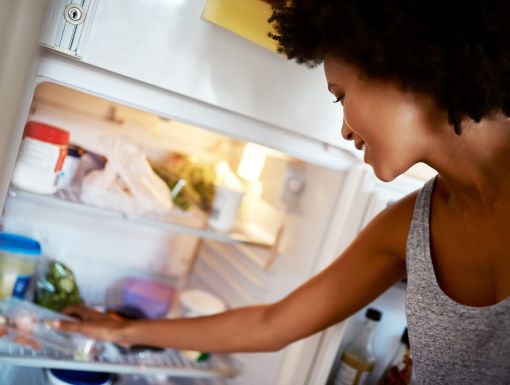
What Causes Bloating and How to Prevent it
We’ve all had the feeling of carrying a “food baby.” Nobody likes living with a bloated belly after eating salty food or drinking a carbonated beverage. But did you know that additional factors outside of these unhealthy foods can contribute to this uncomfortable feeling?
What Is Bloat?
Bloat is a buildup of gas usually caused by poor digestion or swallowed air. The uncomfortable feeling that you experience is a result of bacteria growing in the small intestine which ferments food and creates gas.
Here are a few unexpected items that may be giving you bloat:
- Fruits and vegetables – Some of the healthiest foods are notorious for causing gas because of their high amounts of fiber like avocados, broccoli, kale and apples, all known to cause bloating.
- Stress – When our bodies are stressed, they tend to react by driving blood away from the digestive process. Stress and anxiety can put added pressure on your stomach and upset your hormone balance, creating an environment where foods that normally digest with no problem are poorly digested. This will eventually lead to the creation of gas and bloating.
- Dehydration – When you’re dehydrated, your body retains fluid, leading to the bloat. This is why foods high in salt or carbonated drinks can lead to bloat.
- Medications – Many medications, including birth control pills, antibiotics, nonsteroidal anti-inflammatory drugs (NSAIDs) and steroids can all cause bloat. While antibiotics, for example, have a goal to kill the “bad” bacteria, they can kill many good bacteria as well, allowing room for gas-producing bacteria to grow and bloat your belly. This is called is dysbiosis (bacterial imbalance), and is one of the most common causes of bloating.
Banish your bloat by following these simple guidelines:
- Keep your mouth shut – Swallowing air and gas when you eat or drink can be a major contributor to bloating. Habits like chewing gum, drinking through a straw or smoking are all culprits; avoid these when you can to help keep your bloat down.
- Try a low-FODMAP diet – FODMAP stands for Fermentable, Oligo, Di-, Mono-saccharides And Polyols, and a diet low in these items has been shown to majorly reduce bloating, especially for those with IBS. High-FODMAP foods include wheat, garlic, cabbage, broccoli, beans and much more. Try eliminating these foods and see how you feel. The diet can be a little complex, so it’s always worth speaking to a professional first to figure out if it’s right for you.
- Avoid foods that give you gas — Foods high in fiber and fat can contribute to gas and lead to major bloating. Start a food diary and record foods that make your bloating worse — and slowly start to lessen your intake.
- Take supplements—Many over-the-counter products, like Beano or Lactase, can be helpful in breaking down foods that may not be easily digested in your system and reduce the bloat. Pancreatic enzymes—which help break down fats, proteins and carbohydrates—with bromelain and prebiotics and probiotics are also helpful supplements that can help reduce bloat.
If your bloating becomes a chronic problem, consult a physician to ensure you are receiving the proper care and treatment. But for most, following these simple guidelines can greatly reduce those uncomfortable feelings and leave you bloat-free!


